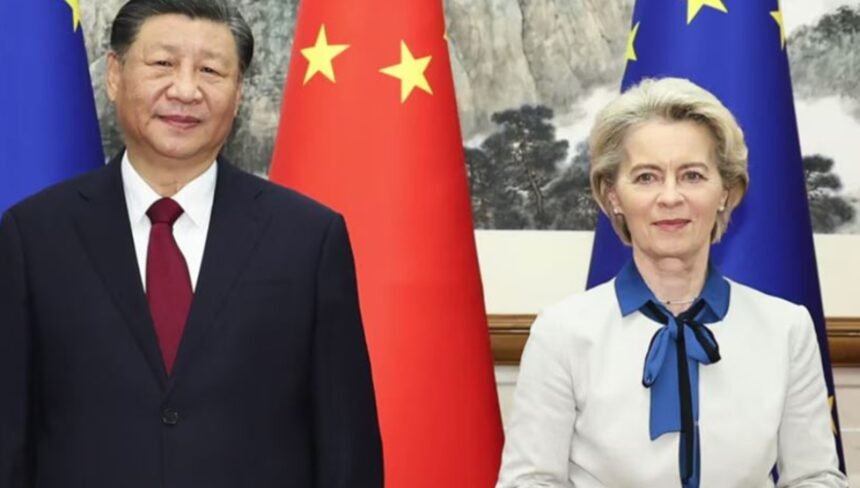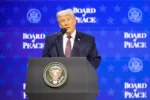Beijing, July 24, 2025 — Chinese President Xi Jinping has called for deepening strategic trust between China and the European Union, urging closer cooperation in a world he described as increasingly turbulent. Speaking at a summit in Beijing alongside European Commission President Ursula von der Leyen and European Council President António Costa, Xi emphasized the importance of communication and mutual confidence between the two powers.
“The more complex the global situation becomes, the more essential it is for China and the EU to strengthen communication, build trust, and deepen cooperation,” Xi stated during a formal reception in the Great Hall of the People.
However, President von der Leyen took a more assertive stance, urging China to engage in what she termed “real solutions,” referencing a range of unresolved disputes that have strained relations in recent years.
Although the meeting marked the 50th anniversary of diplomatic relations between China and the EU, the mood was tempered by a long list of grievances. Key sticking points include trade imbalances, the dumping of low-cost Chinese goods into European markets, and Beijing’s perceived support for Russia amid the ongoing war in Ukraine.
China is seeking to position itself as a more reliable and cooperative partner for Europe, especially in contrast to the United States. But EU leaders have remained cautious, pointing to fundamental disagreements over market access, state subsidies, and geopolitical alignment.
“The challenges facing Europe today do not originate from China,” Xi insisted, adding that there are no inherent conflicts of interest or geopolitical contradictions between China and the EU.
Von der Leyen countered by noting that unless concrete progress is made on trade fairness and transparency, trust-building will remain elusive. Brussels has voiced mounting concerns over the strategic risks of economic overdependence on Beijing, especially in sectors such as green technology, automotive exports, and digital infrastructure.
The high-level talks underscore the fragile nature of China-EU relations, which continue to be shaped by global power shifts, security tensions, and economic rivalry.







